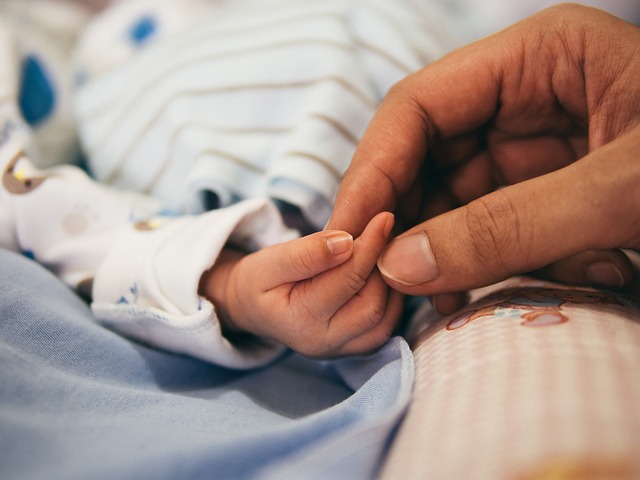The South African Medical Research Council renews funding for GARDP’s work in neonatal sepsis
 The Global Antibiotic Research and Development Partnership (GARDP) is pleased to announce renewed funding from the South African Medical Research Council (SAMRC) to support GARDP’s work in developing improved treatments for newborn babies with sepsis.
The Global Antibiotic Research and Development Partnership (GARDP) is pleased to announce renewed funding from the South African Medical Research Council (SAMRC) to support GARDP’s work in developing improved treatments for newborn babies with sepsis.
The World Health Organization defines sepsis as a life-threatening condition that happens when the body’s immune system has an extreme response to an infection, causing organ dysfunction. The body’s reaction causes damage to its own tissues and organs and it can lead to shock, multiple organ failure and sometimes death, especially if not recognised early and treated promptly.
The SAMRC is providing an additional R6.4 million in funding for the project and to support staff who are overseeing critical aspects of the study in South Africa over the next two years.
“We greatly appreciate the support of the SAMRC in this vital work, which has the potential to provide significant insights for local clinical management and effective treatment of newborns with sepsis,” said Carol Ruffell, head of DNDi GARDP Southern Africa. “GARDP’s unique partnership model puts public health at the centre of antibiotic drug development, ensuring that the right antibiotic treatments are developed and made available to people who need them."
Experience acquired through the clinical trial will also help towards building a long-term sustainable framework to develop and implement trials focused on reducing the impact of major infection threats to newborn and child health.
“The SAMRC’s mission is to advance the health and quality of life and address inequity by conducting and funding relevant and responsive health research, capacity development, innovation and research translation,” said Professor Glenda Gray, the President and Chief Executive Officer of the SAMRC. “With this in mind, we are committed to supporting a better outcome for newborn babies with sepsis and to address antibiotic resistance, which is a major health threat both in South Africa and globally.”
Part 2 of the global NeoSep1 trial will investigate new and existing drug regimens by comparing multiple different treatment regimens to generate evidence in hospitals with varying rates of antimicrobial resistance. The trial in South Africa and Kenya will be expanded to other countries in 2025.
Sepsis is a life-threatening bloodstream infection which affects up to 3 million newborns each year, mostly in low- and middle-income countries. It has become increasingly complex to treat because of high rates of drug resistance. Some 214,000 newborn babies die from drug-resistant sepsis globally every year.
The SAMRC’s funding is a continuation of its collaboration with GARDP, which began in 2017 and is aimed at addressing drug-resistant infections with a high burden in South Africa. The SAMRC was one of the first institutions globally to provide financial support to GARDP at its inception.
GARDP, DNDi GARDP Southern Africa and key global and regional partners, with the support of funders, including the SAMRC, were involved in the neonatal sepsis observational study, which was carried out in 19 hospitals in 11 countries from 2018–2020. GARDP’s clinical trial on new treatments for neonatal sepsis is based on outcomes from this study.
About GARDP
The Global Antibiotic Research & Development Partnership (GARDP) is a not-for-profit organization that develops new antibiotic treatments for drug-resistant bacterial infections that pose the greatest threat to human health and make them accessible to the people who need them. It puts public health needs at the centre of antibiotic drug development to address the immediate crisis of antimicrobial resistance (AMR). Its work is funded by the governments of Canada, Germany, Japan, Monaco, the Netherlands, South Africa, Switzerland, the United Kingdom, the Canton of Geneva, the European Union as well as Global Health EDCTP3, the RIGHT Foundation, Wellcome and other private foundations. GARDP was created by the World Health Organization and the Drugs for Neglected Diseases initiative (DNDi) in 2016 and legally registered as the GARDP Foundation in Geneva, Switzerland in 2018. www.gardp.org
The joint Southern African GARDP and Drugs for Neglected Diseases initiative (DNDi) office opened in Cape Town in November 2017. In 2018 DNDi GARDP Southern Africa registered a not-for-profit company in South Africa. The office works in close collaboration with a broad range of partners across sectors, ranging from the South African government and academia to hospitals and civil society, on clinical trials and studies as well as access to antibiotics.
About the South African Medical Research Council (SAMRC)
Research reported in this article is supported by the SAMRC with funds received from the National Department of Health (NDoH). The SAMRC is an entity under NDoH dedicated to improving the health of people in South Africa, through research, innovation, development and technology transfer. The scope of research includes laboratory investigations, clinical research, and public health studies. The SAMRC aims to help strengthen the health systems throughout South Africa and has consistently provided support to GARDP.

